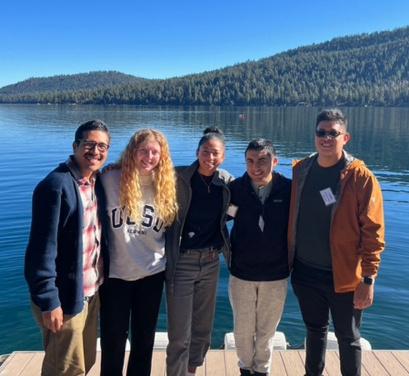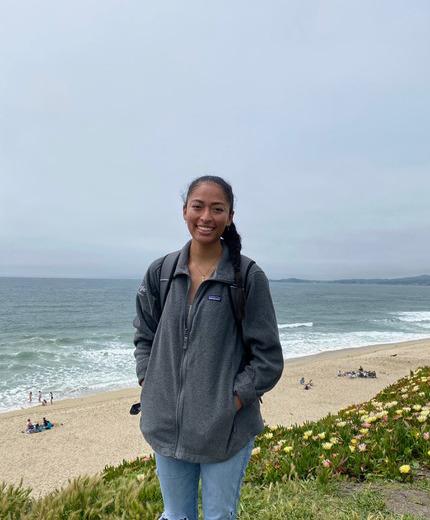
Five tips I wish I knew before starting as a PREP@UCD Scholar
As I approach my last few weeks in Davis, I have a satisfying birds-eye-view of my yearlong journey as a PREP@UCD scholar. This past year has been a rollercoaster of highs and lows. I enjoyed the highs of submitting the NSF GRFP, completing the polar plunge with my cohort, and networking my way through graduate school interview season.
But I also struggled. I struggled to transition to a new laboratory environment, adapt to new communication styles, and fight the burn out of failed/repetitive experiments.
Nevertheless, I have learned skills inside and outside of the laboratory that made this one of the most valuable years of my scientific training. Here are a few reminders that helped me overcome and appreciate every season of my PREP@UCD experience.

1. Accept that there will be a learning curve for every stage and phase. A learning curve could be the gap in knowledge upon entering an unfamiliar field of research, or the uneasy feeling of presenting and writing science.
Give yourself grace during periods of growth. Everyone enters an experience with their own set of skills as well as plenty of room for improvement. Practice makes progress (Figure 1).
2. Create a circle of mentors. As an undergraduate, I learned quickly that I couldn’t do everything on my own. I had to ask for help and seek the constructive criticism necessary to improve. As I transitioned to PREP, it was important for me to build a network of mentors.

This network is composed of mentors from my previous laboratory but also my current lab, PREP program directors, and cohort (Figure 2).
The key word for this second reminder: networking. Some of the most valuable advice I received was from faculty I connected with during graduate school interviews, graduate students I communicated with from different institutions, and faculty members just across campus. Don’t be afraid to ask for help. The worst they can say is “no.”
3. Find a balance that promotes both productivity and happiness.
During my first quarter in PREP, I joined a new laboratory, completed training, wrote weekly grant drafts, read research papers nonstop, applied to graduate school, and pushed my research project forward.
During my second quarter, I travelled across the country for graduate school interviews, completed a graduate-level Genomics course, presented my first chalk talk, pushed my research even further, and made a graduate school decision. Although this is a condensed version of my first nine months in PREP, it reflects the busy-ness of my work schedule.

Find an organizational system that ensures efficiency. For me, I plan out day-by-day objectives on the Friday before the next week starts. This allows me to set expectations for how I use my time, allowing me to use smaller periods of time for data analysis or meetings around a three-day experiment (for example). Writing out my week also gives me the satisfaction of crossing things off as I go.
To maintain balance between my professional and personal life, I set realistic boundaries such as avoiding work on the weekends (to prioritize my mental health and personal life) and putting away work by 7pm on weekdays (to prioritize dinners and sleep). The healthy balance I create for myself will look different for another (Figure 3). Reflect on what you may need to be your best self both at work and at home.
4. Celebrate little victories. For this reminder, celebrate each step of the process. A punch in your celebration card could be well deserved because you submitted your last graduate school application or successfully validated an antibody after three months. Although these two accomplishments don’t guarantee acceptance to that graduate school or equate to a scientific publication, they are steps in the right direction.

5. Get to know the individuals behind the science. I have learned immensely from the scientific process, but also the humans that conduct the science.
My last reminder is to get to know the individuals you have in your circle. This may be your cohort, lab members, program directors, fellow graduate school interviewees, and connections at professional events (to name a few).
The relationships made within and amongst scientists creates community and memories that make the experience worthwhile.
Although there are additional tips I could add to this list, these five have helped me become more independent and mindful as a scientist. More importantly, these are things that I must remind myself of constantly and will continue to do so as I continue onto graduate school. I hope they are useful in building the resiliency required for any professional journey that is to come.